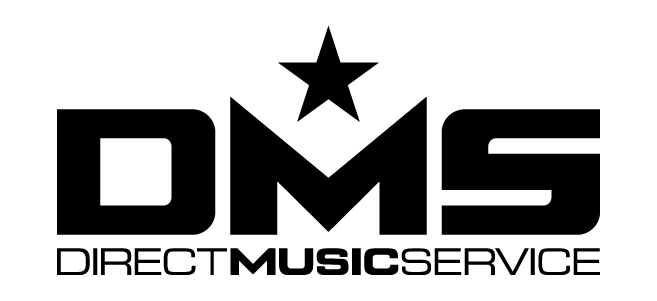Kaskade decides to say his part on the rise of EDM and what has been a hot topic lately what he is doing on stage. Read it the article below:
SF Weekly—
“After growing up in Chicago and passing through New York and Salt Lake City, Ryan Raddon — better known to his thousands of fans as Kaskade — came to San Francisco. It was here, among the city’s flourishing early-2000s house scene, that Raddon came into his own as a DJ/producer of electronic dance music.
Now, Kaskade, like many of his peers, is huge. He’s been named America’s Best DJ. He’s been featured in Rolling Stone. The L.A. stop of his Freaks of Nature tour at the Staples Center this Friday night (July 27) is sold out, as is his show the following night, July 28, at San Francisco’s Bill Graham Civic Auditorium. We recently spoke to the former S.F. resident about what it’s like to come back to the city, his thoughts on why dance music had to evolve to become popular in the U.S., stereotypes about drugs in the dance scene, and what he’s really doing onstage during a live show.
You basically got your start here in S.F. Do you see the city as having a particular influence on your style?
Most definitely. When I first moved there in 2000, Naked Music and Om Records were really getting so much national and international attention. It was all this kind of huge wave of electronic music that was more vocal-driven. ‘Cause really vocals and songwriting had played a really small role in electronic music up to that point, and I feel like San Francisco is one of those cities that kind of helped make it more song-based again, make it more musical, and I really just understood that. And San Francisco’s where I made my mind up: Okay, instead of doing these kind of Chicago Boompty records I need to really focus more on songwriting and trying to make my music be something that, if I pull it up and listen to it in 10 years, it’ll still be relevant. Maybe the production style will have moved on, but the song will still be able to stand on its own.
So it was it in S.F. that you decided to make vocals a key part of your music?
Yep. That’s when I realized it still can be energetic and raw and have its bass on the floor, but it can still be music. I always kind of thought of them as two different worlds and it was in San Francisco, with the rise of that sound with Naked and Om, that I realized, you know what? It can be more than that. Dance music can be musical.
Because it really wasn’t, in the early ’90s and stuff. You know in Europe, everybody’s like, “Why are you guys just getting into this now,” and I’m like, ‘Cause it’s more sophisticated. Americans — we don’t party like they do in Europe. It’s a different thing. I feel like the Europeans automatically just went to the music ’cause it helped the environment. It wasn’t necessarily about the music per se — they like to party, and DJs and electronic music were part of that, so it worked over there.
Where Americans are just a little bit more uptight, we don’t party like they do, we don’t cut loose like that. So I feel like the music had to become a bit more sophisticated and refined, and just like incubate in the underground longer to where it is now, to this point where it’s raw and energetic but yet it’s still quite musical. I mean if you listen to a Deadmau5 record or a Skrillex record, I really enjoy that stuff because, as aggressive sounding as the Skrillex records are, they’re still musical, and that’s why they have such a broad appeal.
So that’s why you think that there’s been this sudden explosion in the popularity of EDM in the U.S.?
I think that’s a huge part of it. I think the biggest driving factor is the fact that the artistry is there, the music is there, the technology is there. It’s easier for younger kids to be able to make electronic music. When I got started 15 years ago, geez man, I had to save for years and years to be able to get enough money to purchase a few pieces of equipment and a sampler to be able to make the music. Now it’s like, you have a laptop and Garage Band…
There are naysayers who say the stuff popular here now is basically the same stuff that Europeans were listening to 15-20 years ago. Do you think there’s any truth to that?
That could only be said by an American who’s never been over there and been entrenched in the scene. That’s absurd. That’s ridiculous. There’s no truth to that at all. I think there is some truth to the fact that yeah, okay, cool, obviously the more mainstream kind of easier-to-grasp-onto dance music has become popular, but that holds true with almost any genre. It wasn’t like the Sex Pistols hit the radio. It was poppier versions of that is what hit. It’s never like the true core stuff. It’s very easy when David Guetta or one of his contemporaries does a song with Chris Brown or features a vocal from some of these R&B pop artists … I understand why that crosses over. I mean true electronic music still has not crossed over. It’s this hybrid version of electronic and R&B-pop-soul-hip-hop that’s crossed over. You know, like ‘Let’s get a track and feature Lil Wayne.’
Were you raised in the Mormon church?
Yeah, I was.
Coming to the scene from that background, how you respond to the idea that some outsiders have that dance music is for people who use drugs, and that all the kids at these raves are on drugs all the time?
I take offense to it, and I wish I had like a bigger platform or like a megaphone to scream back at these people. I just think when any new kind of genre comes to the forefront — there were naysayers when rock ‘n’ roll came along, there were naysayers when hip-hop was having its moment. And that’s what electronic music is experiencing now. It’s a lot deeper than that. It’s like 350,000 kids didn’t show up in the desert to Electric Daisy Carnival just to get high. I sold out my show in Miami; 10,000 kids didn’t just show up to drop E. It’s more than that. They’re oversimplifying it, because they just want to tear it down. Yeah sure, some kids are on drugs, but whatever, I didn’t stop going to high school ’cause kids were on drugs at my high school.
There’s been a discussion lately about what dance DJs and producers are doing onstage when they’re actually performing. What are you actually doing up there, and what do you think is reasonable to expect of an artist given the technology that exists today?
This is such a hot topic right now because there’s so much growth and so much tension on this, and it’s a lot easier to wonder what’s going on when there’s one dude onstage instead of a band onstage. I think the dialogue started because Deadmau5 really was trying to make a point in his Rolling Stone article, and I don’t think it came across right. But for me … look: I’m seven albums into my career. So I have my hand on a lot of music that people associate with me — these are words and melodies that I’ve written, in many cases. People have the lyrics tattooed on their body; that’s something that I thought of at four in the morning in a studio somewhere in San Francisco, you know? So everything came from me.
At my concerts, what I’m doing is I’m blending premade songs to weave and create like this fabric or environment. But these are all songs that I’ve all written and produced. This is my music, here it is, much like a rock band would go on tour and play their songs, except my instrument is a laptop and two CDJ1000s. So it’s creating and weaving these prerecorded tracks to create something that’s a longer, bigger piece of music.
There’s still a lot of educating going on, because look — people call me a DJ, and you also hire a DJ for your daughter’s 16th birthday. I’m always like man, we need a different word. I mean I respect and love the word DJ, it doesn’t bother me because I grew up loving and knowing what DJs did and respecting the art, but I think nowadays it’s so much different. I’m more of an artist and a songwriter than I am a DJ. That word seems a little bit — well, it doesn’t really describe what I do.
What do you like to do in S.F. when you come back on tour? Any particular places you like to go?
I’ll definitely go to the Mission and get a burrito. I miss my San Francisco Mexican food so much. Yeah, I’ll hit Taqueria Cancun, that’s one of my spots. You know I lived right across the street from the baseball park there for the majority of the time I lived in San Francisco, so China Basin, I just miss that whole neighborhood. If there’s a game in town that afternoon, that would be the freaking ultimate, ’cause every time I was in town I would always try and catch a game. And it was great living across the street. I didn’t even have to pay attention to the schedule — I’m like ‘Oh, sweet, traffic’s building up, there must be a game! Alright, I’ll walk over across the street and catch it!’
Where are you based now?
I’m in Los Angeles. I moved down to L.A. almost three years ago now. But it’s weird — the three years that I’ve lived in L.A., it’s like, honestly I’ve been on the road. I left my house two months ago … and I haven’t been back, not even for like a night, and I don’t go back for another two months. People say, ‘You’ve left San Francisco. I’m like, ‘Yeah, I did kinda, not really.’ I mean my mail doesn’t go to San Francisco anymore, but really, since I left San Francisco, since I sold my house there, the touring has just been nonstop. So it’s weird, when I go back to San Francisco, the few times that I’ve done shows there since leaving, it still feels like I live there. It’s very, very strange for me. That’s where my daughter was born, at UCSF. I have this huge attachment to San Francisco. It’s like a love affair.”
DOWNLOAD ON DMS


